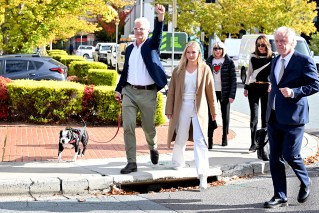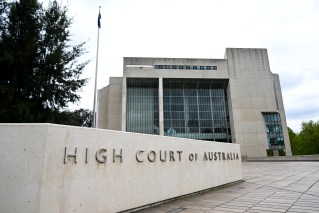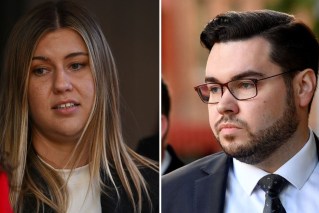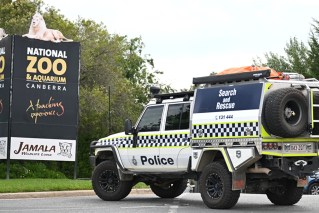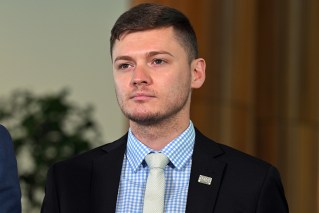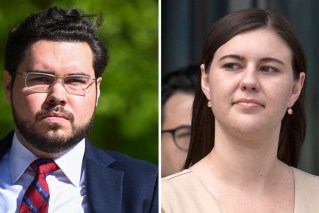Lehrmann inquiry exposes delicate balance of justice
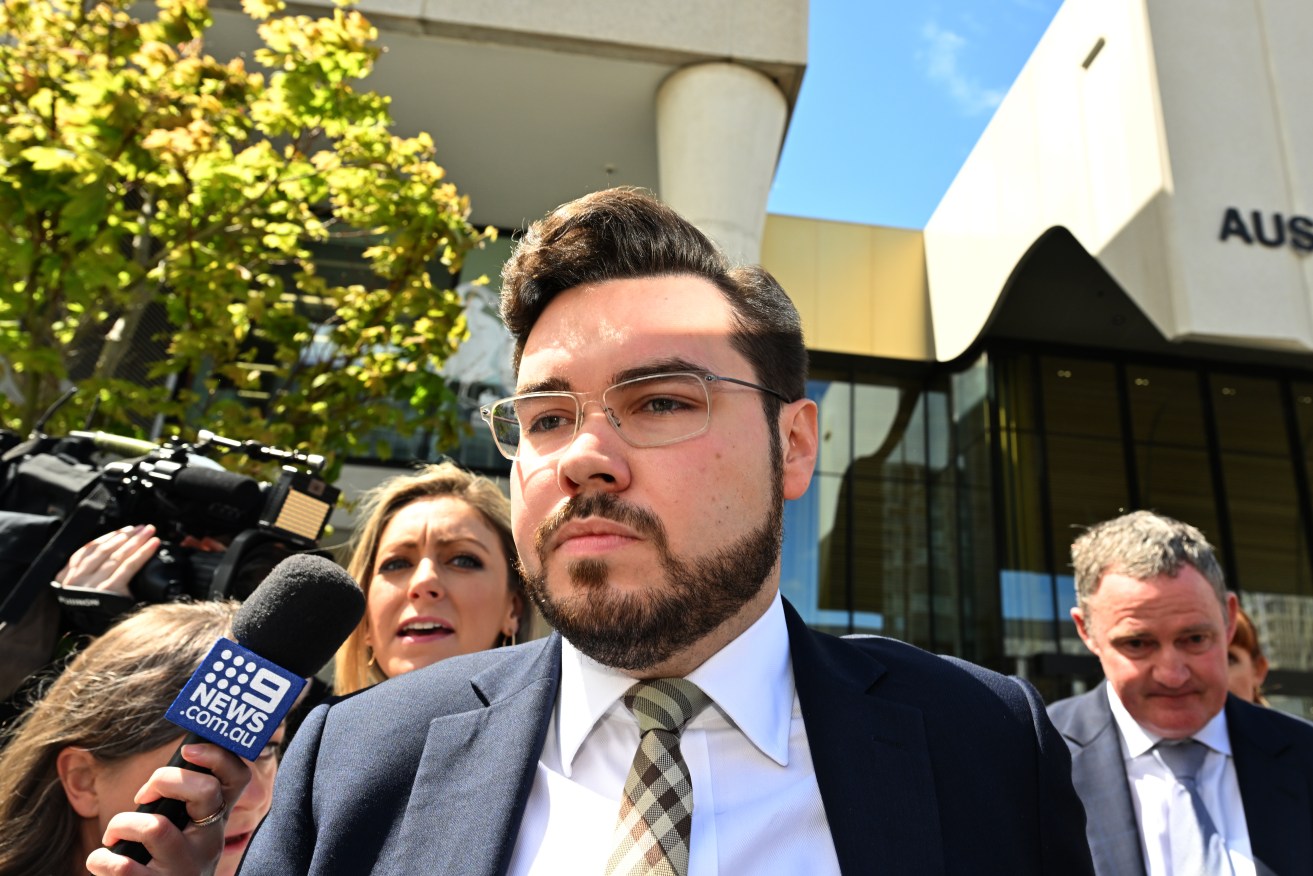
Brittany Higgins will be one of the main witnesses called in Bruce Lehrmann's defamation cases. Photo: AAP
After 13 days of public hearings, nine witnesses and the receipt of more than 100,000 documents, an inquiry is about to consider what went wrong during Canberra’s biggest trial in years.
When ex-Liberal staffer Brittany Higgins went public with an allegation she was raped by her former colleague Bruce Lehrmann inside a minister’s office at Parliament House, it sparked an unprecedented chain of events.
Mr Lehrmann, who has always denied the allegation, faced an ACT Supreme Court trial in October 2022 but juror misconduct derailed proceedings and a verdict was never reached.
Following the top prosecutor’s decision not to proceed with a retrial due to the impact on Ms Higgins’ mental health, it was revealed he had written to the chief police officer to raise serious concerns about the case.
Director of Public Prosecutions Shane Drumgold outlined “quite clear investigator interference in the criminal justice process” based on a series of “strange events” during the investigation and trial.
This led him to believe police had a “passion” for the prosecution to fail and he called for a public inquiry into both political and police conduct in the matter.
The territory government granted his request and established a board of inquiry, led by former Queensland solicitor-general Walter Sofronoff.
The inquiry was given scope to investigate the conduct of police, defence lawyers, the head of a victim support service – and the chief prosecutor himself.
Mr Sofronoff described Mr Lehrmann’s trial as the nation’s most scrutinised since Lindy Chamberlain’s case in 1982, while defence lawyer Steven Whybrow said his client was convicted in the media before a jury was even empanelled.
Mr Drumgold insisted he had maintained objectivity throughout the matter, but during the inquiry he was forced to confront several of his own errors.
While the case attracted political interest, the director eventually walked back his claim of high-level interference in the case.
Instead, he believed police officers who investigated the matter had a “skills deficit”.
The inquiry tested this theory when several senior police officers were grilled about their conduct.
Australian Federal Police Detective Superintendent Scott Moller, who led the investigation, described the intense pressure from the public, media and within the AFP to lay a charge against Mr Lehrmann, despite some officers believing the evidence wasn’t strong enough to do so.
Det Supt Moller said the prosecutor’s office was dismissive of police concerns and he felt Mr Drumgold was trying to “collect evidence” to criticise officers.
But the inquiry also revealed confusion within the police force about when to charge a suspect.
An inquiry document, based on statements made by 16 officers, showed different definitions about the legal threshold they needed to meet.
Mr Sofronoff flagged that action needed to be taken to ensure consistency in police charging patterns, an aspect of the inquiry expected to feature in the recommendations.
Delicate tensions within the justice system when it comes to sexual assault cases could also be addressed by the final report.
These involve balancing an accused person’s right to the presumption of innocence with the need to provide support to a complainant.
The inquiry heard the tension was particularly stark in the ACT, where Victims of Crime Commissioner Heidi Yates operates within the Human Rights Commission.
Ms Yates acted as a support person for Ms Higgins during the investigation and publicly accompanied her to the trial each day.
She also stood alongside the former Liberal staffer as Ms Higgins delivered a statement to reporters following the trial’s derailment in which she spoke of the truth of her allegations.
That decision attracted criticism, but Ms Yates defended her public support of Ms Higgins and said no one in the police, defence team or prosecution raised issue with it.
She said the commission started from a position of belief and accepted information given about an alleged crime unless it was clearly inaccurate when assessing a person’s eligibility for support services.
But the inquiry heard the use of the word “victim” risked an accused person’s right to the presumption of innocence.
Mr Sofronoff suggested Ms Yates’ title could be changed to “complainants of crime commissioner” while still allowing her to fulfil the same duties.
Each party will submit written closing statements to the inquiry as it considers possible recommendations for the territory government.
Mr Sofronoff’s final report is due by the end of July.
KEY ISSUES RAISED AT THE INQUIRY :
DIRECTOR OF PUBLIC PROSECUTIONS
* DPP Shane Drumgold accused police of having a “passion” for the prosecution of Bruce Lehrmann to fail
* Walked back claim about “political interference” in the case, instead saying investigators had a “skills deficit”
* Admitted his office closed ranks against police officers during the trial as prosecutors believed police had lost objectivity in the matter
* DPP accused of misleading the court on his advice to Network 10 journalist Lisa Wilkinson about her Logies speech, which delayed the trial and led to widespread media criticism
* Mr Drumgold admitted he could have been clearer but believed Wilkinson and Channel 10 lawyer Tanya Smithies understood his advice as a warning
ACT POLICE
* Lead investigator Detective Superintendent Scott Moller admitted officers made a mistake by providing Ms Higgins’ counselling notes to prosecutors and defence lawyers
* Accused DPP of “dismissing” police concerns that there was not enough evidence to charge Mr Lehrmann
* Senior Constable Emma Frizzell admitted police were confused about the legal test required to charge a suspect
* An inquiry document showed police had different definitions about the charge threshold
* This ranged from “reasonable honest belief” to “honest belief in the suspect’s guilt” and “reasonable possibility of obtaining a conviction”
VICTIMS OF CRIME COMMISSIONER
* Commissioner Heidi Yates defended her decision to accompany Ms Higgins to court each day and said no one in the police, defence team or prosecutor’s office raised issue at the time
* The commissioner conceded she should not have stood alongside Ms Higgins as the former Liberal staffer made a media statement outside court
* Ms Yates said she would have made a different decision if she had known what Ms Higgins was going to say
— AAP

